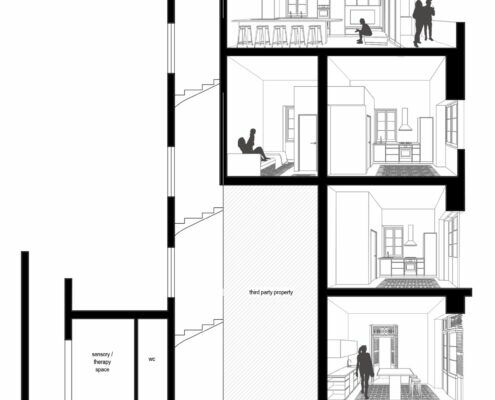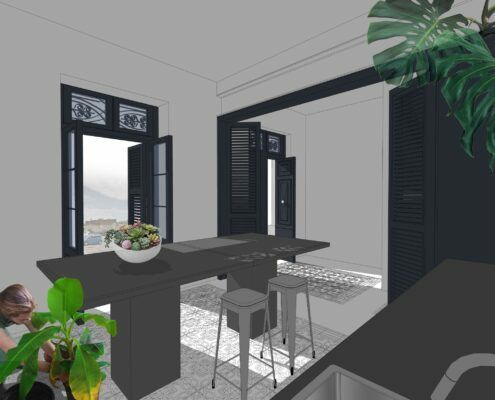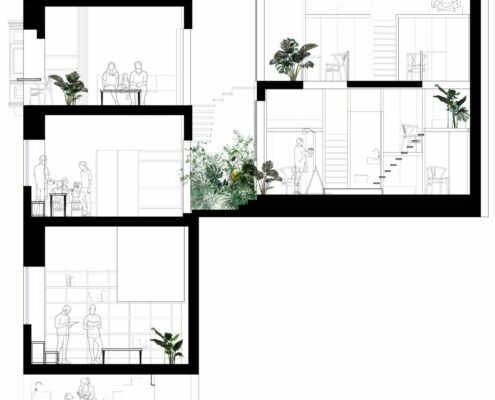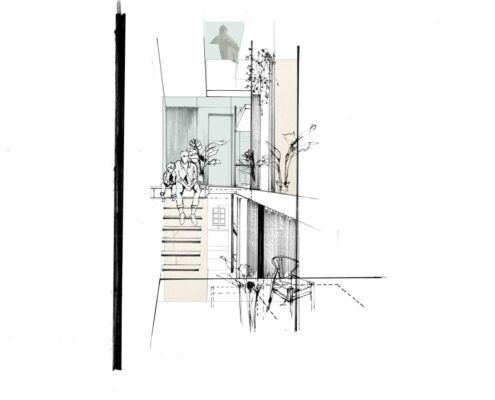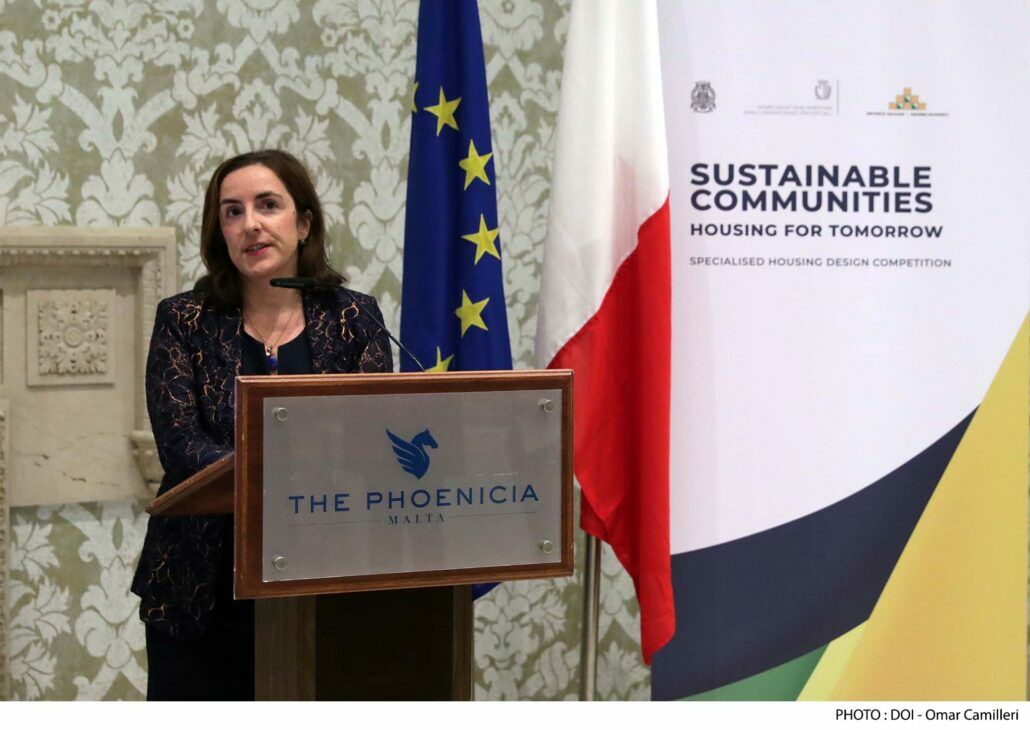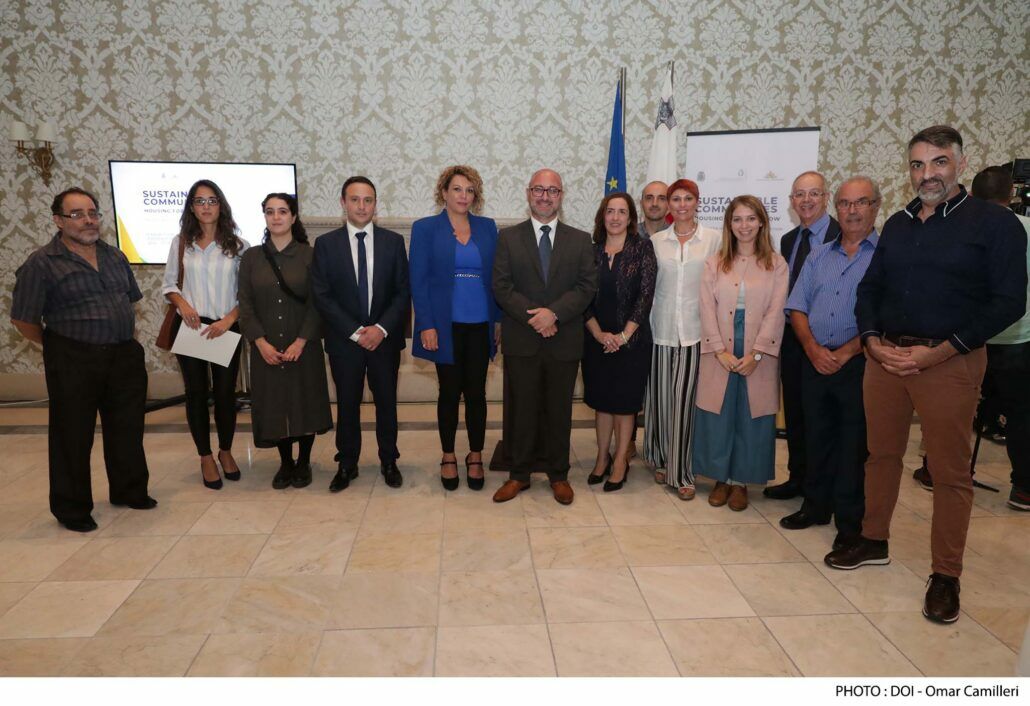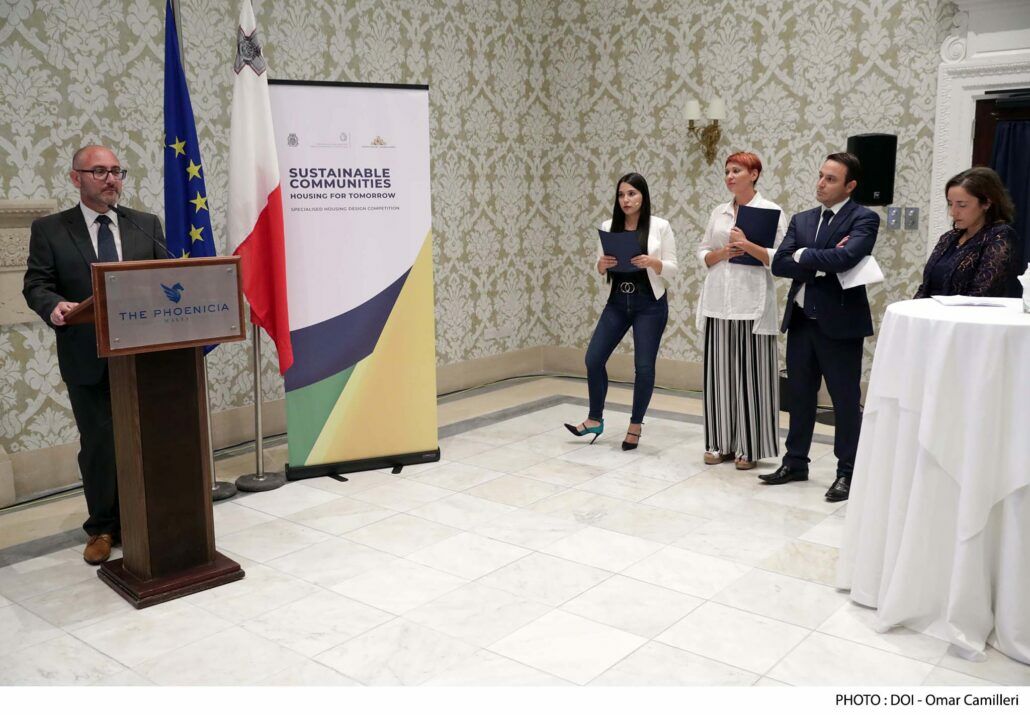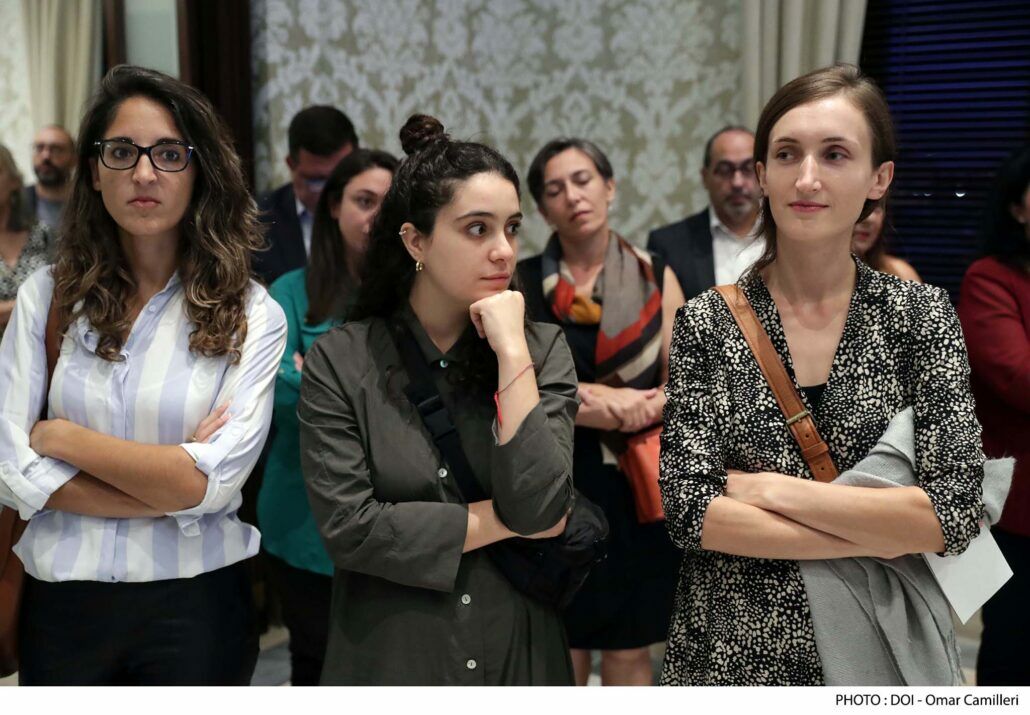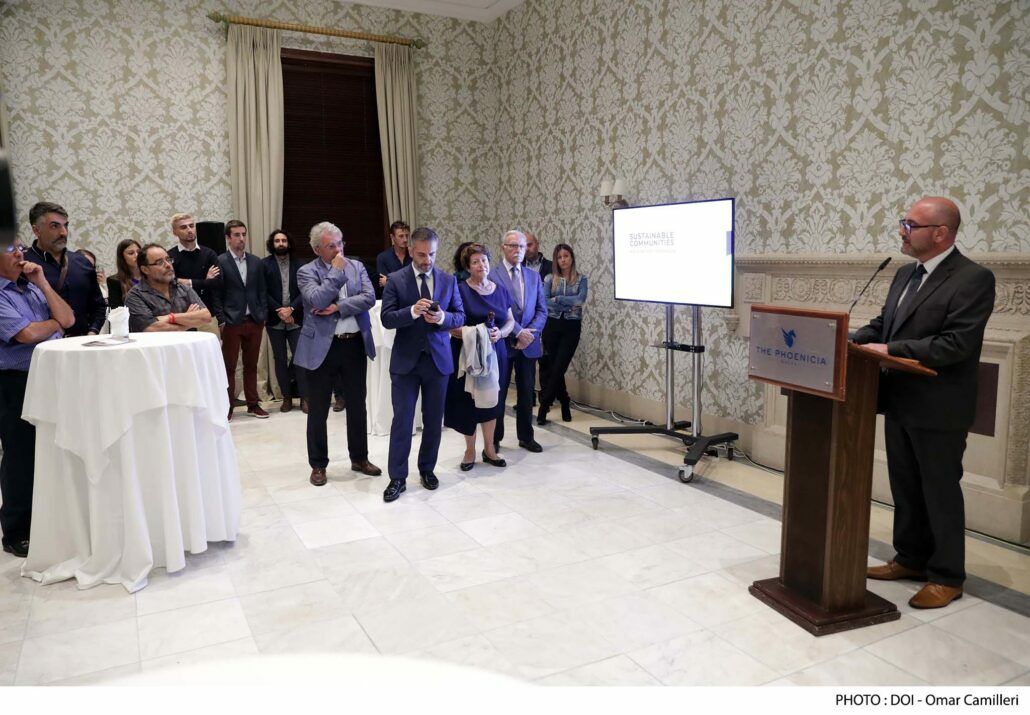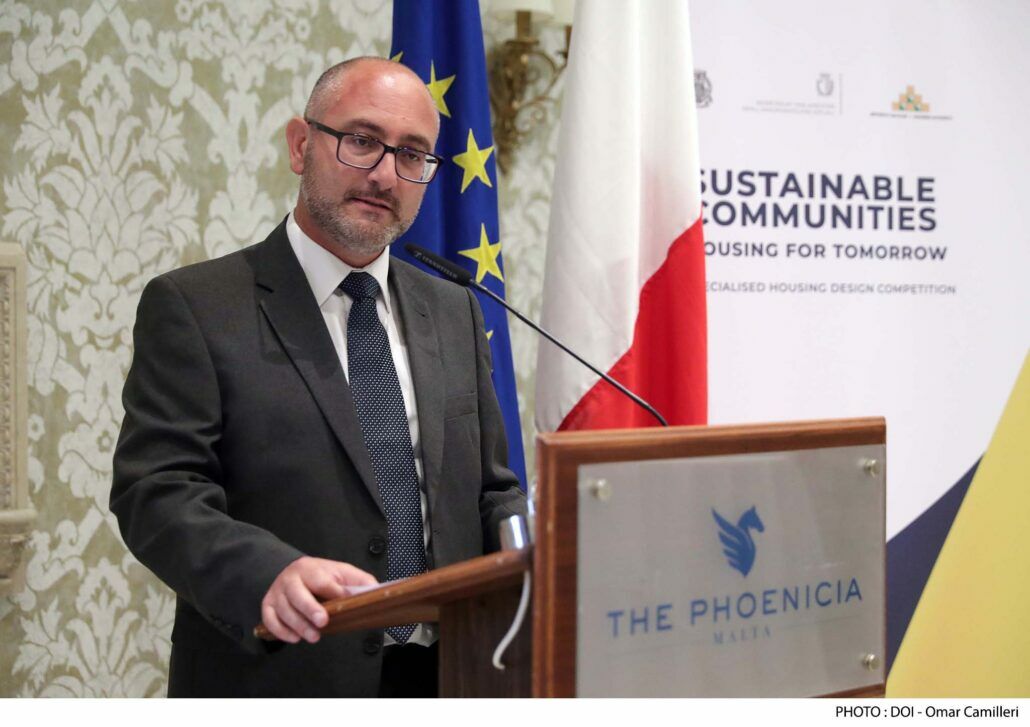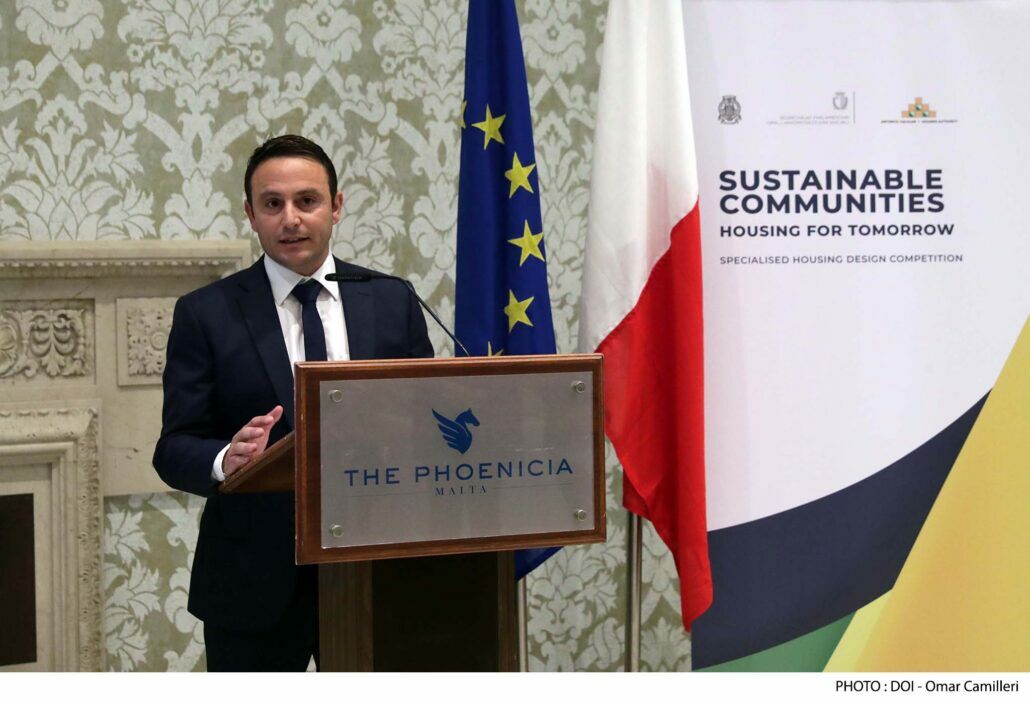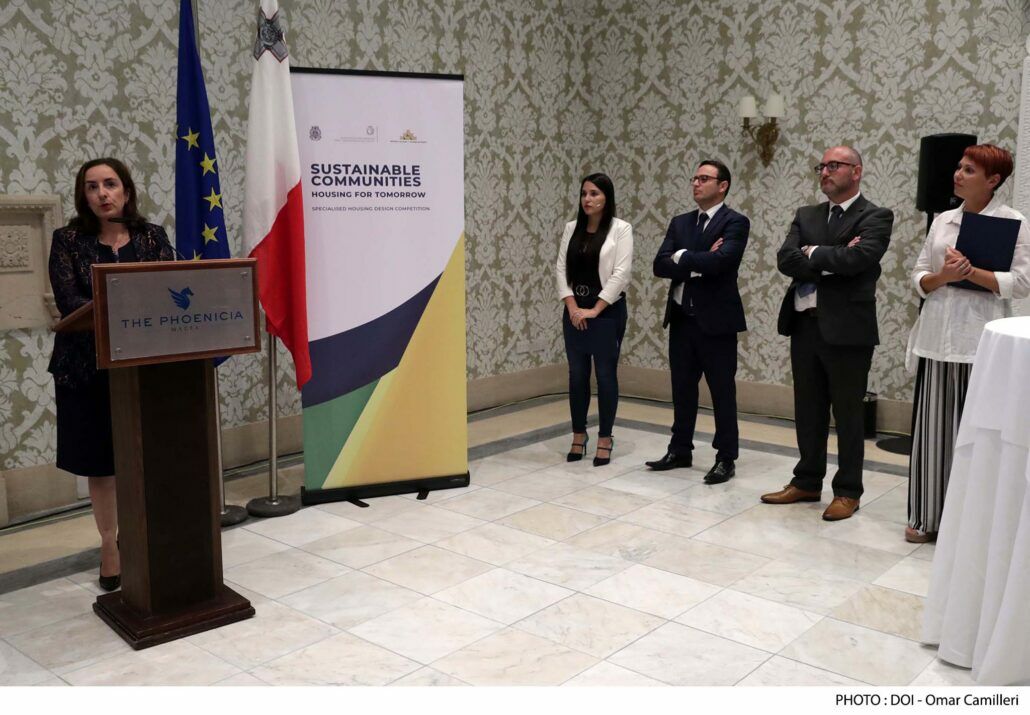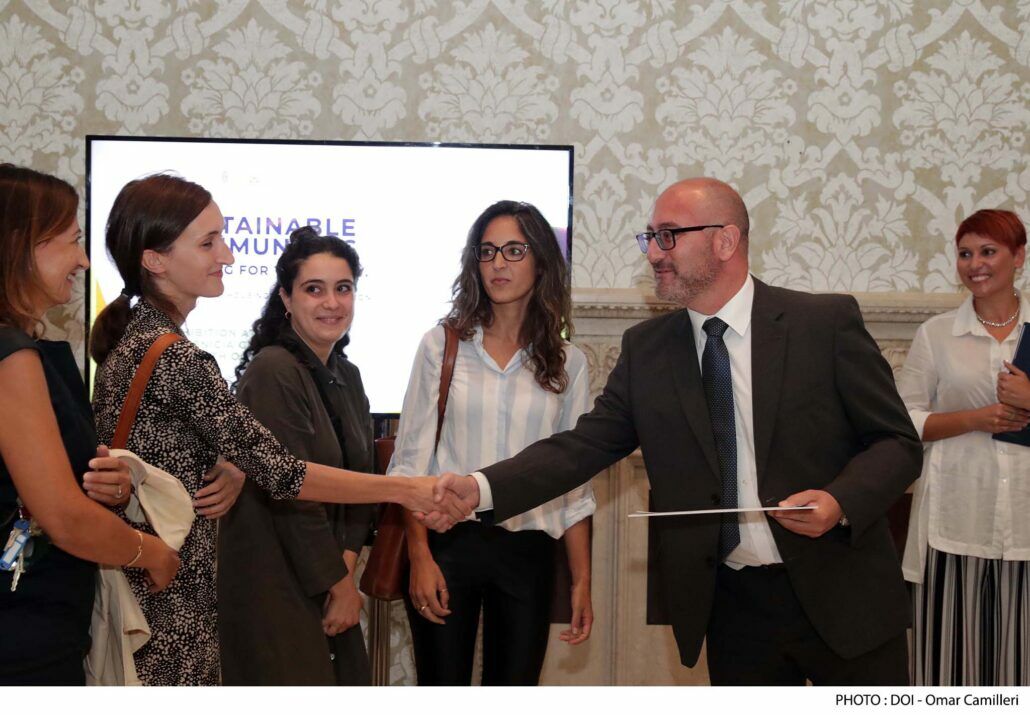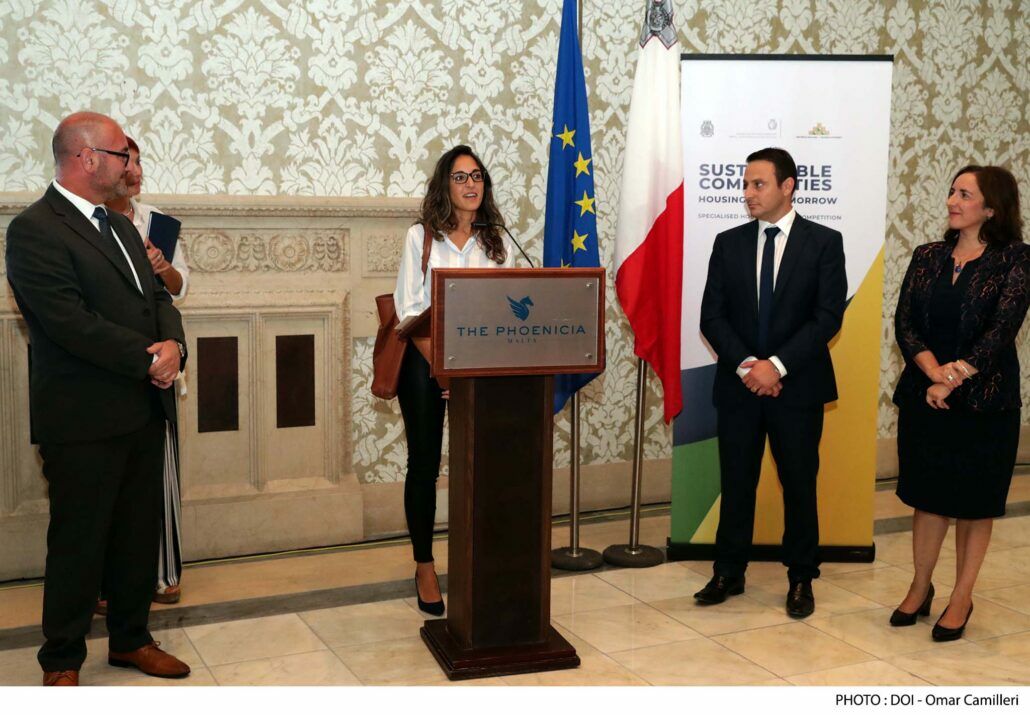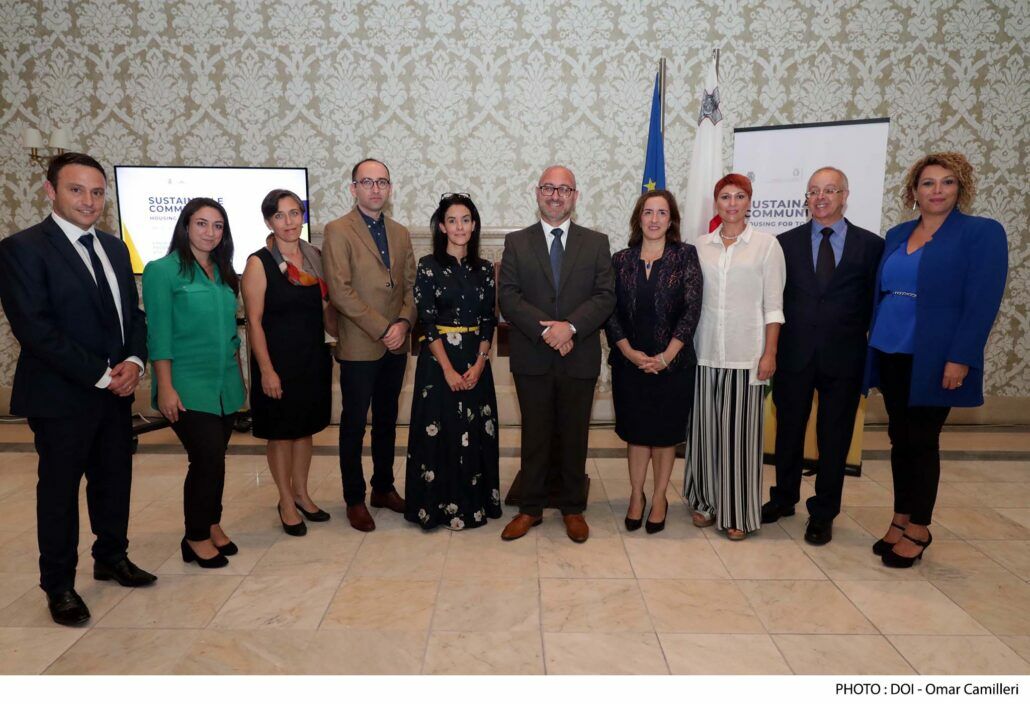PR 32/19 | ODZ is a misnomer
Just three weeks ago, the Planning Authority embarked on a ‘consultation’ process wherein it invited members of the public to comment on whether the scope of the current Rural Policy Design Guidance (RPDG 14) has had its intended effect. An effective consultation would require, as a basic premise, an understanding of the intent of those who drafted the original policy, and a thorough assessment of the actual effects of the current policy prepared by the Authority itself. In the absence of publicly available data and statistics this current consultation process is inherently flawed.
The three-week consultation period allowed makes a mockery of the term “public consultation”, especially when considering the vast implications that this policy has on our quality of life, and on the sensitivity of our natural environment. It is also unclear what this current consultation is attempting to achieve, since it appears to be more focussed on asking the public’s opinion on whether the RPDG has worked or not, and whether it should be aligned with the Strategic Plan for the Environment and Development (SPED) and the National Rural Development Programme, as though this were an option up for debate. It is therefore important that Phase 2 of the review process consists of the establishment of the overarching Objectives and Scope, and a consultation process undertaken on such Objectives and Scope, prior to delving into the detail of the Policy itself.
Nevertheless, a review of the RPDG (2014) is clearly urgent and needed; however, more benefit would be derived if the amended policy is aligned with an updated SPED, which is itself up for review within the next 12 months. The two processes must run in parallel, while maintaining the current premise of the SPED that the “Maltese landscape is a cultural landscape, and the surviving structures show its continued use, and are testimony of the country’s past”. A revised policy for our rural areas should base its principles on the realisation that our rural environment has an intrinsic value which exceeds its monetary worth at any one moment.
The term “Outside Development Zone” is a misnomer and should be abolished. It implies that no development activity may be carried out in such Zones, however it is a fact that legitimate development is necessary to maintain the character of our rural areas, and to accommodate uses that cannot be located within built-up areas. The construction of a rubble wall is development; the construction of a farm is development; the quarrying of rock is development; the dumping of waste is development.
Thus, rather than defining our territory in terms of “Development Zones” and “Outside Development Zones”, it is recommended to adopt two broad categories, namely Urban Areas and Rural Areas, in addition to the Coastal and Marine Areas. These should in turn be further classified to hone into more specific urban and rural typologies, allowing the formulation of more focussed policies which would recognise the distinctive characters, identities, and the activities taking place within such classifications (such as Countryside, Rural Conservation Areas, Agricultural Areas and Green Belts).
Villages and hamlets have for decades been designated as Urban Areas. This is incorrect. Villages form an integral part of rural landscape and identity. The urbanisation of rural settlements has brought about an exasperating urban sprawl, the effects of which can be witnessed through the out-of-control air pollution and exponentially problematic traffic generation.
Any type of development in the Rural Area should be of a design, quality and scale that respects the rural setting. The RPDG already requires that any “proposed development is of high quality rural design and must respect the rural context.” High quality contemporary architecture by its very nature should be responsive to its context, be it urban or rural. It would not otherwise be of high quality. Many of civilisation’s highest architectural achievements are found in natural contexts. The interplay between built and natural forms and materials provides for far more exhilarating cultural expression than false vernacular architecture. It is pertinent to point out that vernacular buildings were built at a time when rural construction was crafted by artisans making best use of locally available materials and tools to address the most basic needs of shelter and utility. They are indeed an important part of our cultural heritage and are best respected by not being mocked or falsified.
Furthermore, the Maltese Islands are in dire need of a Landscape Strategy for the Rural Area, which is site specific and which is studied to the extent that it takes a holistic view of this important asset which our country has, rather than adopting the all too common piecemeal approach which is entirely dependent on the whims of certain developers.
The positive effects that the natural environment has on addressing climate change, air and water quality, biodiversity, social well-being, and to national and local identity must be translated into effective planning policy. Our rural areas need to be safeguarded to ensure a sustainable future for our islands. The rural setting is as important, culturally, economically and socially as are our urban centres, our built cultural heritage, and our natural resources, and must be recognised and treated as such.
PR 31/19 | Partial Review of the Ta’ Qali Action Plan does not consider the national and public interest
In September, the Planning Authority published its proposals for a Partial Review of the Ta’ Qali Action Plan.
The review concerns an area of approximately 60,000 square metres located adjacent to the Embassy of the United States, and proposes to designate such land as a Commercial Area, with an overall building height of 17.5 metres.
The Kamra noted that “across the developed world, out-of-town commercial centres are largely being abandoned in favour of rehabilitated inner-city or urban facilities. These reinforce the desirability of city living and cut down on the vehicular traffic and the attendant pollution and traffic congestion that are inevitably caused by large regional commercial developments located outside the urban area.”
The Kamra tal-Periti further noted that “one of the justifications presented in favour of the proposals is that the site has outlived its usefulness in the industrial context. Whilst recognising that it would, perhaps, be unrealistic to hope for the area to be returned to its undeveloped state, it is pointed out that the general area is earmarked as a Rural Area and the Ta’ Qali National Recreation Centre, which includes no commercial hubs but only enterprise hubs (i.e. the existing industrial areas). It is therefore felt that the area should be re-developed into uses that are complementary to the sports facilities around the National Stadium, and to the adjacent Park tal-Familja. The emphasis on commercial development is therefore questioned in this regard, as is the extent to which the public interest and that of the environment in general were considered.”
The proposed revision is premature and lacking in proper studies that would normally arise in a serious and well-considered approach. The Kamra pointed out that allowing intensification is not the solution to the Authority’s claim that the existing industrial use is redundant, and that the proposals appear to be directed more towards appeasing a major private landowner and facilitating their interests than achieving any planning gains or safeguarding the national interest and that of the public at large.
PR 30/19 | Malta Chamber and Kamra tal-Periti agree to collaborate further
The Malta Chamber of Commerce, Enterprise and Industry and the Kamra tal-Periti have signed a memorandum of understanding on Monday, with the aim to enhance collaboration between the two organisations.
By virtue of this agreement, the Malta Chamber and the Kamra tal-Periti have agreed to co-operate actively on matters of national economic policy of common interest to the business community and the architecture and civil engineering profession. To this end, the parties may assist and provide each other with expertise in relevant areas.
Moreover the parties shall engage in a meaningful dialogue with a view to support each other on a policy level.
“The Memorandum of Understanding being signed with the Kamra tal-Periti, is the latest in a series of collaboration agreements the Malta Chamber has entered with strategic organisations, in a bid to provide members with a stronger network of support” said Malta Chamber President Perit Xuereb ahead of the signing. “The agreement shall provide a formal environment within which the two organisations will be able to forge a strong relationship for the benefit of members from both sides. I am keen to see the fruit of such a relationship”
Perit Simone Vella Lenicker, President of the Kamra tal-Periti, stated that this Agreement marks an important milestone in the history of the Kamra, which will be celebrating its centenary next June. She remarked that “The Kamra and the Malta Chamber are aligned on a number of levels, most importantly in terms of ethical standards and the drive to promote economic growth – in this sense we will be working closely to ensure that the industry in general, and specifically the profession, contribute towards the Maltese economy in a sustainable manner that is respectful of the nation’s social, economic and environmental needs.”
The agreement was signed by President Perit David Xuereb and Deputy President Ms Marisa Xuereb on behalf of the Malta Chamber and President Simone Vella Lenicker and Vice President & Treasurer Andre Pizzuto on behalf of the Kamra tal-Periti.
The Malta Chamber of Commerce, Enterprise and Industry is the independent voice of the private sector in Malta. Its principal mission is to actively represent companies from all economic sectors and ensure that entrepreneurs enjoy the best competitive environment and regulatory conditions possible for the conduct of business. The Chamber was set up in 1848, and is the longest established Social Partner in Malta. It is the only Employer organisation that is recognised by the Laws of Malta (Commercial Code Cap 13).
The Kamra tal-Periti traces its roots to the former Chamber of Architects which was established in 1920 to serve as a body for the self-regulation of one of the oldest established professions. The Kamra is somewhat unique amongst similar professional organisations in Malta since its regulatory remit and functions arise from specific Legislation (Subsidiary Legislation 390.01). The Kamra’s mission is to support members of the profession in achieving excellence in their practice of architecture and engineering in the interest of the community.
PR 29/19 | Sustainable Communities – Winners of design competition announced
The winners of the first design competition organised by the Kamra tal-Periti were announced on Monday 7th October 2019. The competition was organised as part of the policy “Sustainable Communities: Housing for Tomorrow”, spearheaded by the Housing Authority and the Parliamentary Secretariat for Social Accommodation.
Following a call for applications, two NGOs were selected by the Specialised Housing Board to take forward their proposals. Mid-Dlam ghad-Dawl proposed a project which focuses on the provision of supportive housing and therapeutic services to prisoners and their families, with an aim to create a homely domestic and child-friendly environment which supports integration and which emulates real life scenarios. The Richmond Foundation’s project aims to offer support to homeless mothers with mental health problems and their children, through an integrative approach towards housing and service provision which will enable them to achieve independent living.
The NGOs were then allocated a dilapidated property each, one in Birgu and one in Bormla, and the Kamra tal-Periti launched the design competition, inviting professionals to put forward their proposals for the rehabilitation of these two buildings in line with the briefs of the two NGOs. Seven proposals were submitted for consideration by the jury, which was composed of Dr Rachael Marie Scicluna representing the Specialised Housing Programme Board, Ms Mariella Mendez Cutajar representing the Specialised Housing Programme Board, Perit Jacques Borg Barthet and Perit Edward Said representing the Kamra tal-Periti, Prof Alex Torpiano representing the Faculty for the Built Environment, Dr Andrea Dibben representing the Faculty for Social Wellbeing and Mr Caldon Mercieca representing Valletta Design Cluster.
The jury was very impressed with the high calibre and attention to detail that each project was given by all submissions which, in one way or another, engaged seriously with the core criteria of the competition in terms of innovation, conceptual strength and response to the brief. This made the selection process more laborious but also exciting.
The winning proposal for the Richmond Foundation project was titles “Home: An Active Threshold for Belonging” and was submitted by Local Office. The jury selected this project for the sense of home embedded in the overall design. Motherhood, daily domestic rituals, and children’s needs informed the core design. The depth of research and awareness to mental health considerations, the regard for process pre- and post-occupancy and the overall attention to social, functional and budgetary aspects were exemplary. The user-centred design was brought out through a sensitive interplay between the self and domestic daily rhythms, with architectural specificity. Overall, the design proposal demonstrated a strong social research basis, and a careful balance between the private individual spaces and those fulfilling the needs of the community was handled sensitively. The provision of sanitary facilities, the texture of materials and colour schemes within the separate apartments was also considered important, as was the emphasis on the collaborative workshop both during the design stage as well as during use.
“Birgu: The Ordinary House” by openworkstudio was the winner for the project to be led by Mid-Dlam ghad-Dawl. The jury selected this project in view of how it transforms the ordinary into the extraordinary through architectural innovation, contemplation and in-depth research. Structural constraints were transformed into a creative and conceptually stimulating design, which breaks away from the traditional setting of supported accommodation. The domestic dimension was carefully choreographed along lines of visibility which maximise space but also offer a sense of privacy and homeliness. Additionally, the use of participatory parity was embedded in the process of building this home, where prisoners will have the possibility to construct their own furniture – a process which in itself instils hope and aspiration to a brighter future. By keeping the retrofitting of the building to a minimum, this project was able to focus on the intimate by opening up spaces that have the potential to heal.
During the award ceremony, Perit Simone Vella Lenicker, President of the Kamra tal-Periti, stressed the importance of design competitions as a means to select projects that are to be executed through public funds, since this process ensures the best quality of design. This first competition organised by the Kamra tal-Periti was particularly important because it will ensure that two vulerable groups within society will be able to benefit from dignified, safe and qualitative accommodation in the coming years, in line with the Kamra’s mission to ensure a quality built environment for the betterment of society.
PR 28/19 | Kamra tal-Periti celebrates three important dates in its calendar
The Kamra tal-Periti joins its European and global counterparts in celebrating three important days which remind us of the important role the profession has in ensuring a better environment for all mankind.
World Habitat Day 2019
World Habitat Day was established in 1985 by the United Nations General Assembly, and was first celebrated in 1986. The United Nations designated the first Monday of October of every year as World Habitat Day to reflect on the state of our towns and cities, and on the basic right of all to adequate shelter. It also reminds us that we all have the power and the responsibility to shape the future of our cities and towns.
Building on last year’s theme (Municipal Solid Waste Management), the theme for 2019 is: Frontier Technologies as an innovative tool to transform waste to wealth. Technology has great potential to improve how people work and live, to significantly accelerate efforts to achieve the Sustainable Development Goals and address climate change. Frontier technologies, such as automation, robotics, electric vehicles, renewable energy technologies, biotechnologies, and artificial intelligence can transform the social, economic and environmental spheres. They can offer better, cheaper, faster, scalable and easy to use solutions for every-day problems, including waste management. The task ahead is to harness frontier technologies to achieve sustainable waste management while mitigating their possible adverse economic, social and political consequences.
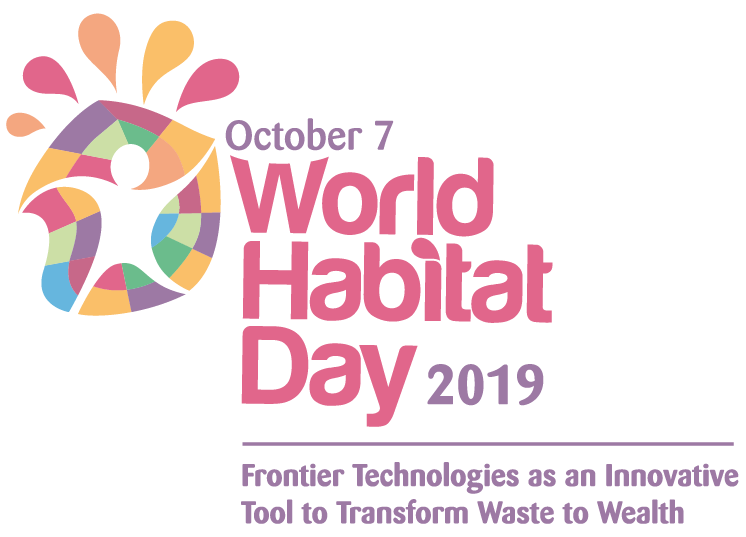
World Architecture Day 2019
In 1986, the International Union of Architects (UIA) established World Architecture Day to coincide with World Habitat Day, with the aim to draw the attention of professionals and the public to issues concerning cities and housing. The theme chosen for 2019 is “Architecture … housing for all”.
More than one billion of the 7.5 billion human beings on our planet live in places they build for themselves, using whatever materials they can scavenge, on whatever land they can claim, often tenuously. Millions lack permanent shelter altogether, as refugees and persons displaced by conflict and calamity. Architects around the world will be considering how design has an essential role in alleviating human suffering, reducing planetary burdens, and enhancing the quality of life for everyone.
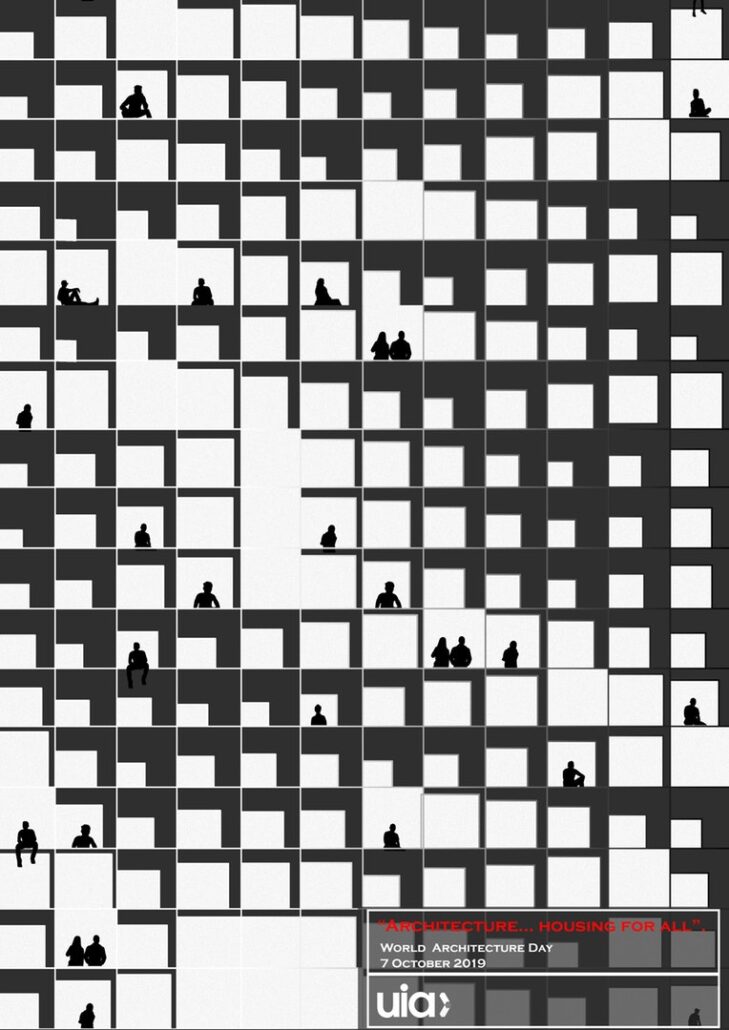
European Engineers Day 2019
Every 5th October, the European engineering organisations ECEC (European Council of Engineers Chambers), FEANI (European Federation of National Engineering Associations), ECCE (European Council of Civil Engineers), together with ENAEE (European Network for Accreditation of Engineering Education) celebrate European Engineers Day to draw attention to the importance of securing the availability of excellent engineering solutions in Europe. The impact of engineering is visible in every aspect of human life, through increasingly more sophisticated inventions, techniques and equipment, and this Day is a good opportunity to remind the profession of the importance of achieving excellence in their respective fields.
For further information visit:
https://www.un.org/en/events/habitatday/
http://zvin.mjt.lu/nl2/zvin/l6wv2.html?hl=fr
Courts Registrar issues new call for Experts for 2020
The Registrar of the Courts of Justice of Malta has issued a call for Court Experts in terms of Art. 89 of Chapter 12 of the Laws of Malta.
The Kamra tal-Periti is hereby notifying all interested members of the profession to submit their nomination for 2019 through the registration form below.
Deadline for the submission of nominations was 7th October, 2019.
PR 27/19 | Richard England honoured with the CAA Robert Matthew Award
/by Kamra tal-PeritiCourts Registrar issues call for Periti to serve on RRB and RLCB for 2019 – 2020
The Registrar of the Courts of Justice of Malta has issued a call for Periti with at least seven years practice to serve on the Rent Regulation Board or the Rural Leases Control Board. The term of office is for two years, and may be renewed for further periods.
The Kamra tal-Periti is hereby notifying all interested members of the profession to submit their nomination through the registration form below.
Deadline for the submission of nominations was 23rd August, 2019 at 12 noon.
BRO issues call for applications to join STO Register
Following the agreement reached between the Kamra tal-Periti and Government, which was formally announced on Friday 2nd August 2019 through Circular 11/19 and Press Release 25/19, the BRO has began publishing a list of registered Site Technical Officers (STOs). The register is intended to provide the general public with a list of qualified people who are authorised by the BRO to provide this service.
The Council of the Kamra tal-Periti is hereby notifying members of the profession that, as per Letter of Commitment, the BRO has issued a call for Periti and graduates in engineering to register their interest to provide the service of Site Technical Officer (STO) as defined in LN 136 of 2019. The form can be found below. When completed, it is to be sent to bro@gov.mt.
The agreement included the removal of the obligation on the perit in charge to approve the STO appointed by the contractor, as long as such person is included in the STO register published by the BRO. The publication of such a list eliminates the risk of culpa in eligendo for periti in charge. Periti are reminded not to submit the Site Management Responsibility Form until it is amended reflecting LN 180 of 2019 and agreement reached with Government as outlined in the Letter of Commitment signed by Minister Ian Borg. The current form still states that the perit in charge is responsible for the execution of the works (which is the contractor’s responsibility), that the perit in charge is approving the STO (which is no longer a legal requirement), and that the STO must be a perit (which is in conflict with the list of registered STOs published by the BRO and with Third Schedule of LN 136 of 2019 as amended). Once the forms are updated, periti are to ensure that the appointed STO is on the register.
As per para 4 of Directive 12/19, Periti are to await further instructions from the Council on the uploading of BRO forms.
Affiliations
The Kamra tal-Periti is affiliated with the Architects' Council of Europe (ACE), European Council of Civil Engineers (ECCE), Union International des Architects (UIA), Union of Mediterranean Architects (UMAR), Commonwealth Architects Association (CAA), and the Malta Federation of Professional Associations (MFPA).
Contact Us
Kamra tal-Periti
52, Triq San Pawl
Il-Belt Valletta VLT1212
Malta
+356 2131 4265
info@kamratalperiti.org
Office Opening Hours
Mon-Fri: 8:00am - 11:00am

